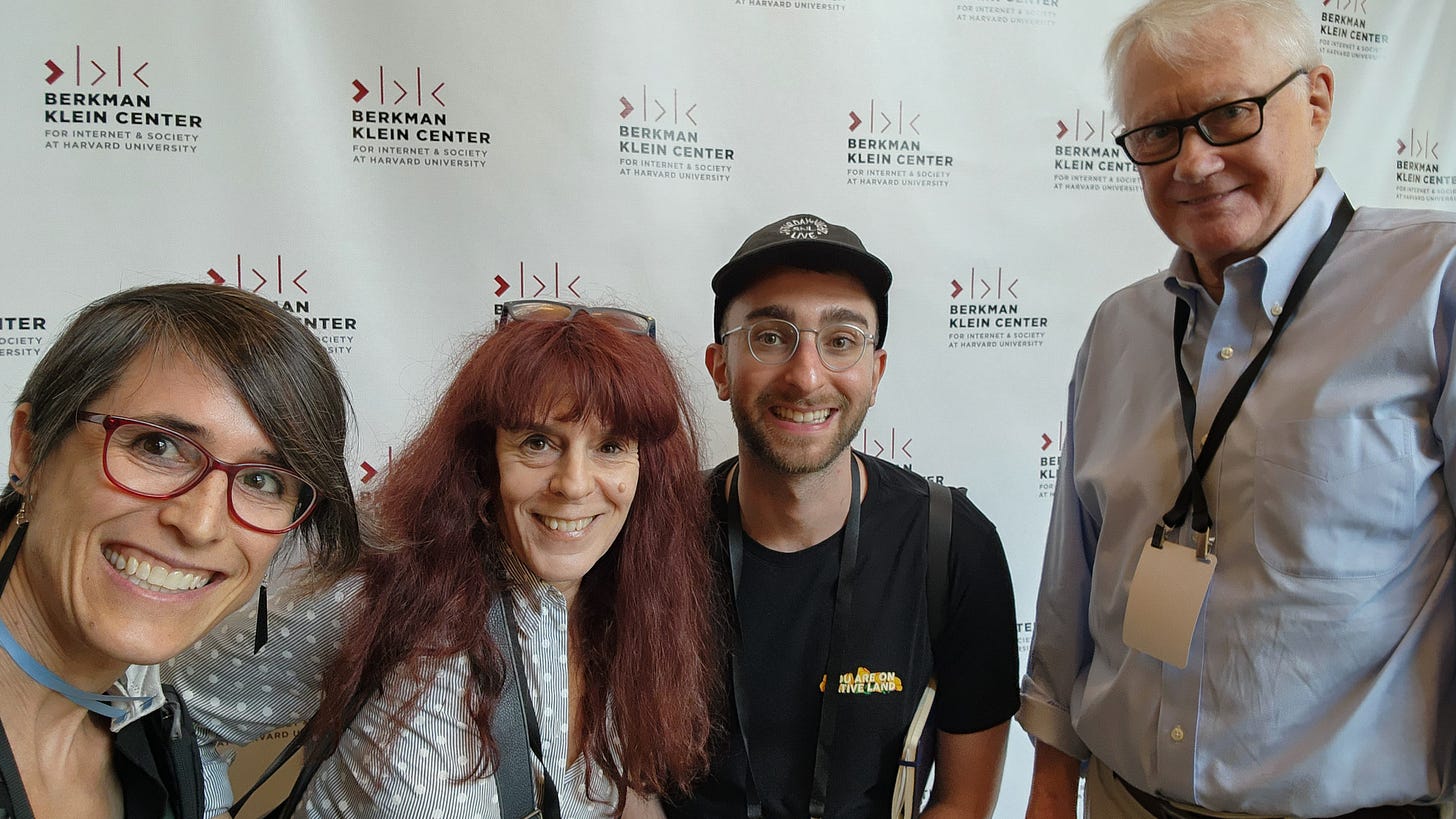Reflections from the Berkman Klein Centre’s 25th Anniversary
Reflections on the role of academic scholarship in founding tech companies
The Berkman Klein Centre (BKC) at Harvard — a bastion for internet studies and the birthplace of initiatives like the Creative Commons and Wikimedia — recently marked its 25th anniversary. As I prepare to enter my fourth year as an Affiliate, this milestone nudged me to share some insights from the anniversary conference and reflect on how my time among its scholars has shaped me as a founder.

Critics, Analysts, and Tomorrow’s Tech
The narrative in academic spaces like the Berkman Klein Centre tend to have two distinct voices: the critics and the analysts.
Critics, with their incisive observations, lay bare systemic gaps and push for transformative reforms. Their critiques, although usually lagging, capture public opinion and foreshadow regulatory shifts — vital exposure for people building future-oriented technology.
Meanwhile, analysts weave theory and historical insights to paint a picture of what lies ahead. While some ideas born out of academic thought, such as fresh approaches to personal data management, might still be in their nascent stages, they're on the cusp of becoming our reality. It was at the BKC that I had my first exposure to questions around media consumption and self-presentation, the practical limitations of data interoperability, privacy techniques to empower individuals and many of the other themes we touch on at Koodos Labs.
Foreseeing the AI Wave
At the heart of the conference was the question of AI's future trajectory and impact on society. In the shadows of the social media era, there's an urgency to comprehend the potential spirals AI might trace. But what offers hope is the present-day academia and policy-makers' proactive and pragmatic approach, a stride towards anticipated challenges with purpose.
The Quiet Power of Scholarship
To some, academia seems slow and completely disconnected from the reality of building for users and markets. While there’s some truth to that and there’s a very strong need for builders and scholars to meet, it’s precisely the unhurried pace of scholarship, steeped in thought, that grounds us. It’s the time to theorize, discuss, tear down and build again.
Whereas for builders with limited runway and market demands, we're often running against the clock, making it easy to miss alternative approaches or the nuanced implications of our endeavors. When there’s urgency, we tend to retrofit solutions based on what we’ve come to know and it’s very hard to break that pattern. The more access to knowledge we have, the more of an edge we can have as fast-moving builders.
Towards Pragmatic Idealism
I was inspired by Jacinda Arden, New Zealand’s former Prime Minister and now a BKC Fellow. In her efforts to run a country and make policy decisions at speed (like during the Christchurch attacks and COVID), she had limited access to data and had to intuit her way to decisions quickly. She regularly referenced a frame of reference: “pragmatic idealism”: seeking to realize (seemingly unreachable) ideals by taking into account practical considerations. It's a philosophy that resonated deeply with me. When applied to the role of tech innovation, her perspective was that technology magnifies societies existing ills and isn’t a source of our ills. This viewpoint not only shifts the problem's definition but also broadens its responsibility beyond the people building technology — although there’s a need for tech founders to consider societal impact alongside maximizing financial returns — a necessary goal for any venture-backed company.
In closing, as the Berkman Klein Centre marks a quarter-century of intellectual leadership, it serves as a potent reminder of the symbiosis between the tech world, policymakers and academia. Their combined insights foster not only innovation but also responsibility. Whether we're addressing what the future of social media is, the challenges of AI or decentralized technologies, valuing critics and analysts, or pondering the deeper lessons of scholarship, the guiding light remains: to create technology that pushes society forward. It's a journey of continual learning, and I'm grateful to be a part of it.

